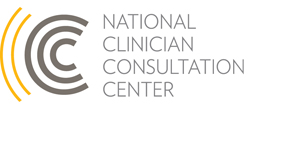Case of the Month: Cervical Cancer Screening In HIV-Positive Women
Case Summary
A nurse practitioner calls about a 61-year-old HIV-positive woman. The patient was diagnosed in 2002, and is currently virologically suppressed on combination ART. She had a total hysterectomy in 2000 due to persistent dysplasia (no further details are available) and subsequently had three yearly negative vaginal Pap tests. She has not had any testing since then. Should vaginal Pap tests be done post-hysterectomy?
Clinician Advice
The caller and consulting clinician together reviewed available guidelines and current literature, including the April 2015 Guidelines for the Prevention and Treatment of Opportunistic Infections. Those guidelines do not recommend routine screening for vaginal cancer in HIV-positive women with prior hysterectomy for benign disease, unless there is prior documented CIN 2 (cervical intraepithelial neoplasia), CIN 3, or cancer. Additionally, although there is no screening procedure available for vulvar cancer; a biopsy or referral is recommended when inspection/palpation identifies suspicious lesions.
In this case, no details are known regarding the degree of prior dyplasia. Despite a low absolute risk for lower genital tract neoplasia among HIV-positive women, there is a substantial increase in relative risk of vaginal dysplasia for HIV-positive women compared to HIV-negative women. Since a vaginal Pap test probably poses low risk for this patient, the clinician suggests repeating the Pap once more at this time. If results are negative, it is unlikely that screening needs to be continued as long as the patient remains asymptomatic.
Because CCC consultations are based on information provided by the caller or clinician accessing the online consultation center, without the benefit of a direct evaluation or examination of the patient, consultations are intended to be used as a guide. They do not constitute medical advice and are not to serve as a substitute for medical judgment. This Case of the Month includes consultation based on the most up-to-date evidence at the time of its publication. To learn about current recommendations, please call one of our clinical consultation lines.
Find more information on this topic:
CDC’s Guidelines for the Prevention and Treatment of Opportunistic Infections in HIV-Infected Adults and Adolescents, April 2015
Up To Date’s latest information on Screening for Cervical Cancer in HIV-Infected Women
Effect of Human Immunodeficiency Virus Infection on the Prevalence and Incidence of Vaginal Intraepithelial Neoplasia, originally published in Obstet Gynecol.
 University of California, San Francisco |
University of California, San Francisco |
